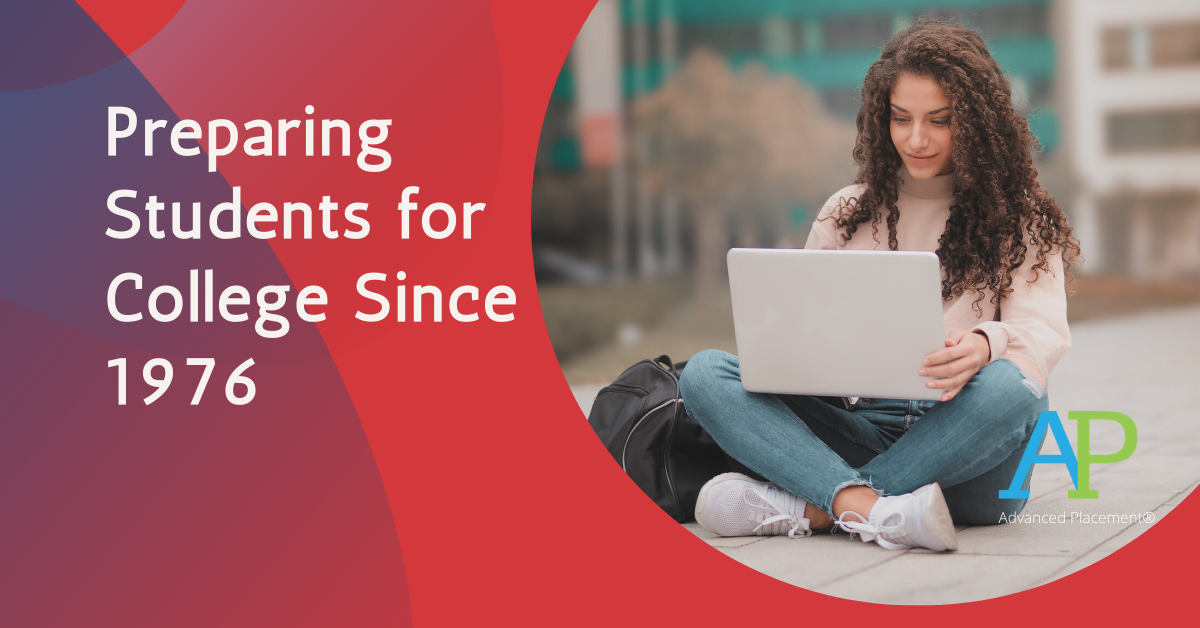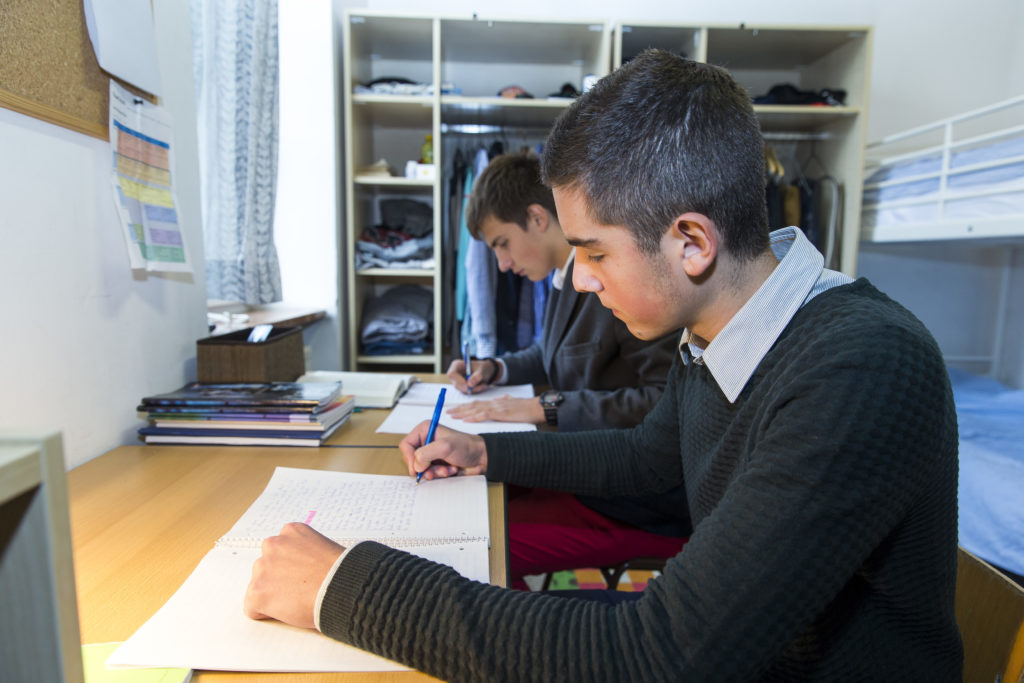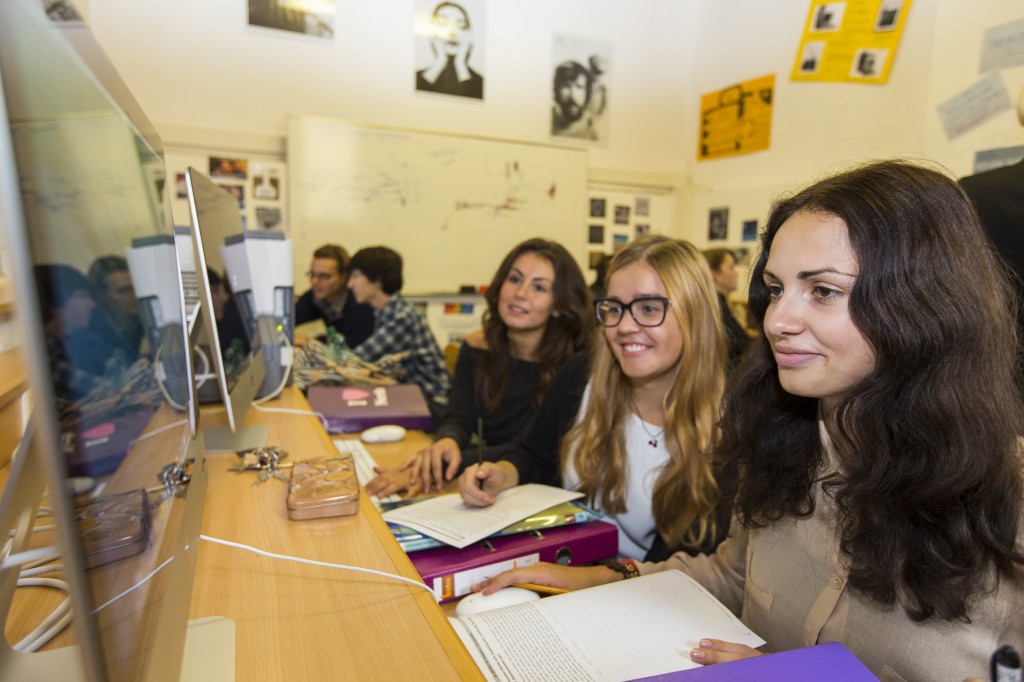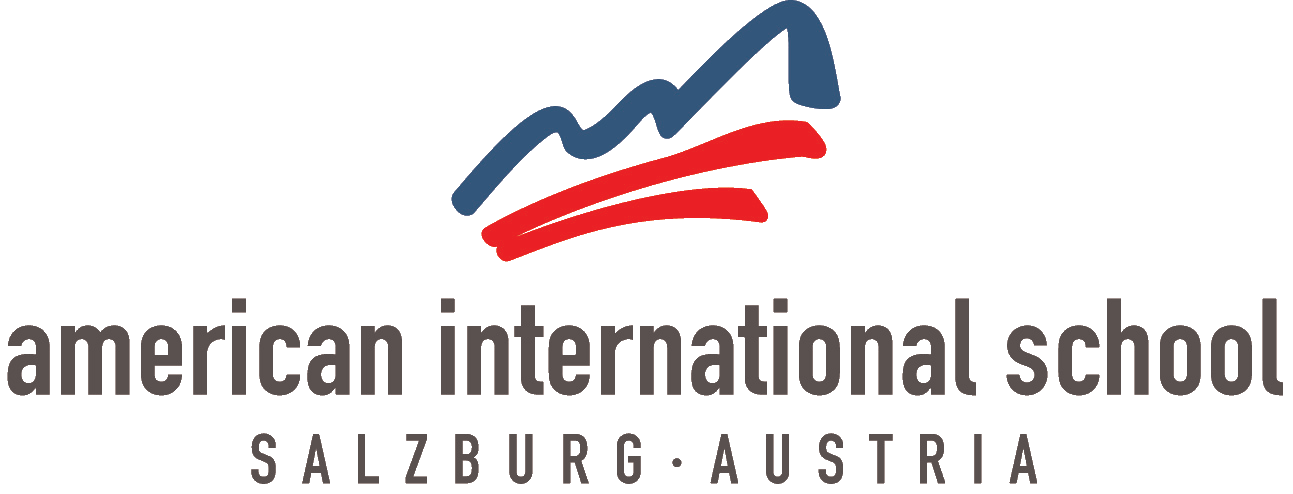
The Senior Project & College Preparation
January 21, 2021
Since 2004, shortly after the American International School-Salzburg re-established the Advanced Placement® courses in our curriculum and requirements, the administration and faculty made the important decision to add a senior research paper element to our graduation requirements. Called the Senior Project, this prerequisite academic qualification requires all students in the senior class to research, draft and submit a work of originality on an approved topic of their choice and interest. This is considered an important experience for high school seniors and the parameters of the assignment reflect those skills and competencies which are expected as prerequisite for successful university study.
Nearly all college-preparatory programs at the secondary level have installed research writing projects into their curricula which are similar to those at AIS-Salzburg. In schools that subscribe to the International Baccalaureate Diploma Program®, the Extended Essay element is considered, ‘practical preparation for undergraduate study’ and is a prerequisite for receiving the diploma. Since the Advanced Placement® program of the College Board is not a standard curricular program but, rather, a collection of university-level courses and examinations that students can choose to take at their discretion, there is no mandatory equivalent. This is why nearly all schools that are qualified to offer Advanced Placement® courses also require an independent research project before graduation.
The Senior Project requirement at AIS-Salzburg should not be underestimated in its level of challenge. Although research parameters and expository composition skills are intrinsic to the AIS-Salzburg secondary English syllabus, the Senior Project is uniquely important in that it requires a student to combine a number of skills and competencies in the production of a weighty piece of writing within the framework of salient research methodology; a critical skill for further academic studies and success.
What are the requirements?
The senior project requirements include:
- the identification and exposition of a written thesis—a statement or proposition—which requires defense utilizing expert support collected through research,
- the development of a logically-presented outline of argumentation which moves from the assertion inherent in the thesis, step-by-step toward a conclusion which supports and defends the assertion adequately through previously-collected, valid evidence and expertise,
- the expansion of the argument’s outline into a formal, well-written document which properly gives credit where credit is due, but is predominantly typified by the original thoughts and expressions of the student author,
- and the polishing of that draft into a finished paper which proper regard for the rules of grammar, attention to appropriate academic style, correct language usage and application of all pertinent writing rules,
- the submission before the end of the Winter Trimester of a finished paper of 4,000 words minimum length alongside proper source citations, in appropriate format and presented to the Senior Project Committee of Readers as well as possible response to a call for oral defense of the work.
How are the Senior Projects Evaluated?
The Committee of Readers evaluate the following aspects of the Senior Projects :
- research methodology
- organization of content and logical presentation
- usage of conventions of style
- mechanics and proper MLA formatting
- overall quality of the research and presentation of the argument
Of the 100 points possible on the project, 40 of these are earned on an ongoing basis by meeting the various preliminary deadlines set by the school (thesis submission, outline, drafts, meetings with advisors, etc.) and 60% are earned through the evaluation of the finished product.

What important academic principles are practiced and learned?
The experience of researching and writing a formal academic paper is fundamental not only to success at the undergraduate level of university, but represents the essential process for the expansion of knowledge itself. Aside from the practice of combining a number of important academic skills into one project, what the student actually participates in and experiences is that there are fundamental, stipulatory principles which guide the acquisition of new knowledge which are universal and rest at the very core of all academic undertakings. These include,
- a willingness to debate openly and address honestly the arguments and positions of those who disagree with your position or conclusions,
- the necessity of presenting your case in terms and form that are understood by your opponent
- respecting good arguments from others and addressing these with sincerity,
- agreement upon valid methods of proof,
- and the willingness to accept that one might be incorrect as well as the willingness to change one’s views if necessary.
As seniors in high school, it is not expected that these principles will be grasped sufficiently or completely understood through the process of completing this requirement. Like many undertakings at the secondary educational level, it’s more a matter of moving young people in the right direction and pointing out the important road signs along the way so that they become familiar and can be recalled and applied later.
What are the challenges and typical pitfalls?
It would be very difficult for a student in high school to properly guide themselves through the process of researching and producing a senior project on their own. This is why each student is coupled with a competent and experienced faculty advisor who guides them through the process from beginning to end.
Selecting an appropriate topic to develop a thesis from also seems to represent a great challenge to many students. Because a proper thesis represents a proposition with an assertion that requires proving, many attempts are usually required before a proper thesis is generated and can provide the necessary parameters for research and argumentation. The difference between, ‘Napoleon was Emperor of France.’, and ‘Napoleon was an effective Emperor.’ can sometimes be easily overlooked.
The primary challenge for many, however, is to choose a topic that is not too broad and appropriate for the length of the paper. Although many senior students believe that a 4,000-word paper is incredibly long, it’s actually a short paper that requires a limited topic as well. Working with an advisor to trim down a broad topic into something appropriately restricted is one of the fundamental keys to writing a very good, concise, well-argued paper.
Behind the principles of academic research and writing, behind the specific requirements of the Senior Project at AIS-Salzburg, is a call to recognize the cardinal importance of academic integrity. In all such undertakings, every student must realize that the paper must be their original work; a work that has never been produced in the past that is exactly similar. Honest misunderstanding of proper citing of expertise, the availability of technology that cuts corners, and simple laziness can tempt one into being dishonest in this endeavor and present work that is not the result of one’s own thought processes.

Plagiarizing formal papers has, unfortunately, has been around as long as such assignments have been required. To give into this particular temptation is not a trifling thing, however. Plagiarism is the intentional theft of another’s intellectual property. Secondly, plagiarism is cheating and the person cheated is the student who plagiarizes. Instead of learning an important academic skill as a part of their education, they deny themselves the chance. Lastly, plagiarism is unfair and fraudulent. If one earns a diploma, degree or title based partially upon the submission of a plagiarized work, the diploma, degree or title is meaningless and hollow and cannot represent your level of skill or knowledge.1 At AIS-Salzburg, plagiarism, when discovered, disqualifies the student from receiving credit for the project and may jeopardize the continuation of enrollment at the school. One of the important, secondary duties of a faculty advisor is to recognize and uncover any such attempts, correct this with the student and provide clear warning of the consequences of such transgressions.
What papers and topics have received outstanding evaluations in the past?
Surprisingly, some of the most unpretentious, most straightforward theses, coupled with excellent research, have yielded the most outstanding papers over the years. Many years ago, an outstanding senior project was submitted arguing that the positive benefits of handwriting far outweighed the convenience of typing/keyboarding. Another excellent paper was submitted with the proposition that Archimedes had actually invented the calculus almost 2000 years before Newton.
The one paper that stands out in my mind as having most impressed me, however, was one in which a senior student translated a previously untranslated French poem into English (although neither of these languages were the student’s mother tongue) and then wrote an outstanding paper on the linguistic difficulties inherent in such an undertaking. Needless to say, this student now pursues a very high level academic career.
Still, what’s important here is not the individual accomplishments of some students, but the undertaking of an important responsibility by the school to provide a college-preparatory experience for all students before they move on to matriculation at university. It may be that the Senior Project remains a dreaded consequence of becoming a member of the senior class oat AIS-Salzburg, but nearly every student who goes through acknowledge that they became much better equipped by the experience to understand what proper preparation actually entails.
